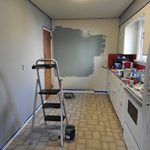 When you start your very first job, you probably don’t think about retirement. However, you owe it to your future self to start planning for retirement now at the beginning of your work career. Here are seven tips that help you grow your nest egg.
When you start your very first job, you probably don’t think about retirement. However, you owe it to your future self to start planning for retirement now at the beginning of your work career. Here are seven tips that help you grow your nest egg.
Be serious about saving for retirement now.
By saving now when you’re young, you take advantage of compound interest and give your nest egg the chance to grow over time. For example, invest $25,000 before your 25th birthday in an account that earns a 12 percent rate of return and you’ll have $2 million by the time you turn 65.
Save as much or as little as you can.
Ideally, you want to save as much money as possible. However, even a small investment makes a difference. Invest $23 per week in an account that earns a 12 percent rate of return, and you will accumulate over $1 million when you retire.
Be thoughtful about your spending.
It’s easier to spend money on a nice car or something fun rather than retirement. Thoughtful spending now secures your future, though. Prioritize your needs, avoid as much debt as possible and be thoughtful about your spending.
Take advantage of matching funds.
If your employer offers to match your 401(k) contributions, take advantage of it. That money is essentially free and helps your nest egg grow.
Diversify your investments.
The 401(k) account you open at work is a smart move. Consider supplementing it with other investments, too, like a traditional or Roth IRA. Be sure to balance risk and return as well to increase your nest egg.
Automate your savings
Automatic savings increase the likelihood that you will actually save for retirement, and you won’t miss that money if you don’t see it in your paycheck. Set up automatic transfers from each paycheck to your retirement fund. Also, consider increasing your automatic withdraws every month or at least annually when you receive a raise.
Save an emergency fund.
It’s tempting to borrow from your retirement account to pay off student loans, buy a house or pay daily living expenses. This action can include penalties, taxes and fines as it decreases your retirement savings. Instead, establish an emergency fund that covers at least three to six months of living expenses, and resolve to safeguard your retirement account.
With these seven tips, you make planning for retirement easy. However, you can also hire a financial planner if retirement savings are confusing, intimidating or boring. He or she will analyze your finances and prepare an investment strategy that meets your needs and gives you financial security for the future.

 Up to 80% of retirees decide to stay in their initial homes after they retire. They have lived there throughout their lives and are relaxed there. However, could you experience more relaxation somewhere else? Perhaps you should spend some more time thinking through things. How much space do you truly need to be relaxed in retirement? What are your choices? Things you might want to think about include the cost, geographic situation, availability of services, and maintenance factors. Think about the different scenarios and how they might apply to you, such as whether to stay in one location or to relocate. You might wish to relocate across town, or perhaps across the country. If you were always interested in moving to somewhere dry or sunny, this could be your chance. You might also be interested in relocating because you would like to be closer to your children and your grandchildren.
Up to 80% of retirees decide to stay in their initial homes after they retire. They have lived there throughout their lives and are relaxed there. However, could you experience more relaxation somewhere else? Perhaps you should spend some more time thinking through things. How much space do you truly need to be relaxed in retirement? What are your choices? Things you might want to think about include the cost, geographic situation, availability of services, and maintenance factors. Think about the different scenarios and how they might apply to you, such as whether to stay in one location or to relocate. You might wish to relocate across town, or perhaps across the country. If you were always interested in moving to somewhere dry or sunny, this could be your chance. You might also be interested in relocating because you would like to be closer to your children and your grandchildren. Short-term disability insurance is an important resource you may have heard about through your job or private insurance agent. Understand what short-term disability insurance is as you decide if it’s right for you.
Short-term disability insurance is an important resource you may have heard about through your job or private insurance agent. Understand what short-term disability insurance is as you decide if it’s right for you. Those wanting to give a home an update or remodel often also want to know what will give them the most return for their invested dollar should they ever want to resell. The results of one new report might cause some surprise.
Those wanting to give a home an update or remodel often also want to know what will give them the most return for their invested dollar should they ever want to resell. The results of one new report might cause some surprise. Personal umbrella insurance can be a valuable tool in your insurance portfolio since it protects your assets. Before you purchase this important protection, though, understand if you need it.
Personal umbrella insurance can be a valuable tool in your insurance portfolio since it protects your assets. Before you purchase this important protection, though, understand if you need it. Anyone that has ever moved can attest that the process has a considerable impact on everything from transportation to and from work to how and where free time is spent. When considering a move, one change that’s often overlooked is insurance coverage. Often a move will affect whether or not various insurance coverage policies are still adequate.
Anyone that has ever moved can attest that the process has a considerable impact on everything from transportation to and from work to how and where free time is spent. When considering a move, one change that’s often overlooked is insurance coverage. Often a move will affect whether or not various insurance coverage policies are still adequate. In the recent case of In Re: the Compensation of Mary S. Sandberg, an Oregon court overruled the Workers Comp Board and held that a JC Penney decorator, who was allowed to work from home, was covered by her Workers Comp policy when she tripped over her dog unloading a van.
In the recent case of In Re: the Compensation of Mary S. Sandberg, an Oregon court overruled the Workers Comp Board and held that a JC Penney decorator, who was allowed to work from home, was covered by her Workers Comp policy when she tripped over her dog unloading a van. Businesses of all types and sizes face risks. Some risks are worth taking and increase your revenue, but other risks cause you to lose money. It’s important for you to spend time evaluating your business risks as you determine which ones are worthwhile to take.
Businesses of all types and sizes face risks. Some risks are worth taking and increase your revenue, but other risks cause you to lose money. It’s important for you to spend time evaluating your business risks as you determine which ones are worthwhile to take. Corrosives are solid or liquid substances that exact extreme caution when handling. They are usually either an acid, such as nitric acid, sulfuric acid, chromic acid, hydrochloric acid, hydrofluoric acid, or acetic acid, or a base, such as ammonium hydroxide, sodium hydroxide, or potassium hydroxide. Anyone that has ever seen the effects that corrosives have on metal or other strong materials can easily imagine the damage that a corrosive would do to the delicate human skin. Adding to the danger is the fact that corrosives act upon contact, meaning that damage begins the moment that the corrosive or its vapors come into contact with the eyes, mouth, skin, digestive tract, or respiratory tract.
Corrosives are solid or liquid substances that exact extreme caution when handling. They are usually either an acid, such as nitric acid, sulfuric acid, chromic acid, hydrochloric acid, hydrofluoric acid, or acetic acid, or a base, such as ammonium hydroxide, sodium hydroxide, or potassium hydroxide. Anyone that has ever seen the effects that corrosives have on metal or other strong materials can easily imagine the damage that a corrosive would do to the delicate human skin. Adding to the danger is the fact that corrosives act upon contact, meaning that damage begins the moment that the corrosive or its vapors come into contact with the eyes, mouth, skin, digestive tract, or respiratory tract. Performers such as magicians, singers, dancers and mascots entertain and help people have fun. While satisfying, this career includes a variety of risks. As a performer, you must know the risks you face and the appropriate safety measures as well as insurance options that protect you, your audience and your business.
Performers such as magicians, singers, dancers and mascots entertain and help people have fun. While satisfying, this career includes a variety of risks. As a performer, you must know the risks you face and the appropriate safety measures as well as insurance options that protect you, your audience and your business.



